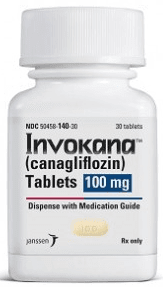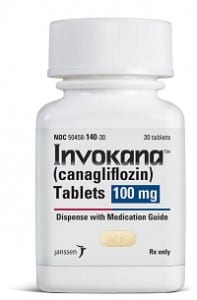 The FDA announced May 18, 2016 that Invokana increased the risk of leg and foot amputations in a clinical study. The agency alerted the public that the diabetes medicine canagliflozin (Invokana, Invokamet) increased amputations in the group of people who took it.
The FDA announced May 18, 2016 that Invokana increased the risk of leg and foot amputations in a clinical study. The agency alerted the public that the diabetes medicine canagliflozin (Invokana, Invokamet) increased amputations in the group of people who took it.The U.S. Food and Drug Administration (FDA) Drug Safety Communication reported that the interim clinical trial results found the increased risk of amputations mostly affected the toes, and said it would investigate.
In the larger picture, the agency said that it had not yet determined “whether canagliflozin increases the risk of leg and foot amputations. We are currently investigating this new safety issue and will update the public when we have more information.”
Canagliflozin vs. Placebo
The ongoing Canagliflozin Cardiovascular Assessment Study (CANVAS) clinical trial’s independent data monitoring committee (IDMC) identified the increased risk of leg and foot amputations. They occurred roughly twice as often in patients treated with canagliflozin compared to others treated with placebo. Interim analysis over a year’s time showed the risks of amputation for patients in the trial were equivalent to:
• 7 out of every 1,000 patients treated with 100 mg daily of canagliflozin
• 5 out of every 1,000 patients treated with 300 mg daily of canagliflozin
• 3 out of every 1,000 patients treated with placebo
CANVAS trial patients have been followed an average of 4 ½ years up to May 2016. But despite the apparent increase in amputations, the IDMC (Independent Data Monitoring Committee – apparently none of whom is personally part of the trial) recommended that the CANVAS trial continue.
The IDMC also said that a second trial evaluating canagliflozin – the CANVAS-R trial – has thus far not shown the same risks of increased leg and foot amputations. Patients in this second trial have been followed an average of nine (9) months.
Meanwhile, the FDA urges health care professionals and patients to report “side effects” involving canagliflozin or other medicines to the FDA MedWatch program.
FDA: Consult your Doctor
FDA further said that patients should not stop or change diabetes medicine without first speaking with their health care professional. Stopping diabetes medication can lead to uncontrolled blood sugar levels which can cause serious problems that include blindness, nerve damage, kidney damage, heart disease. Patients taking canaglifozin should consult their doctor if they feel any new pain, tenderness, sores, ulcers, or infections in the legs or feet.
Cangliflozin / Invokamet / Invokamet
Canagliflozin is a prescription medicine designed to help lower blood sugar in adults with type 2 diabetes. It belongs to a class of drugs called sodium-glucose cotransporter-2 (SGLT2) inhibitors. Canagliflozin lowers blood sugar by causing the kidneys to excrete sugar from the body through the urine. The drug is available as a single-ingredient product under the brand name Invokana. It is also available in combination with the diabetes medicine metformin, under the brand name Invokamet.
Related
- Invokana Lawsuit
- Diabetes Medicine linked to Ketoacidosis Risk
- CFDA: Canagliflozin (Invokana) increases Amputations in Trial

by Matthews & Associates




